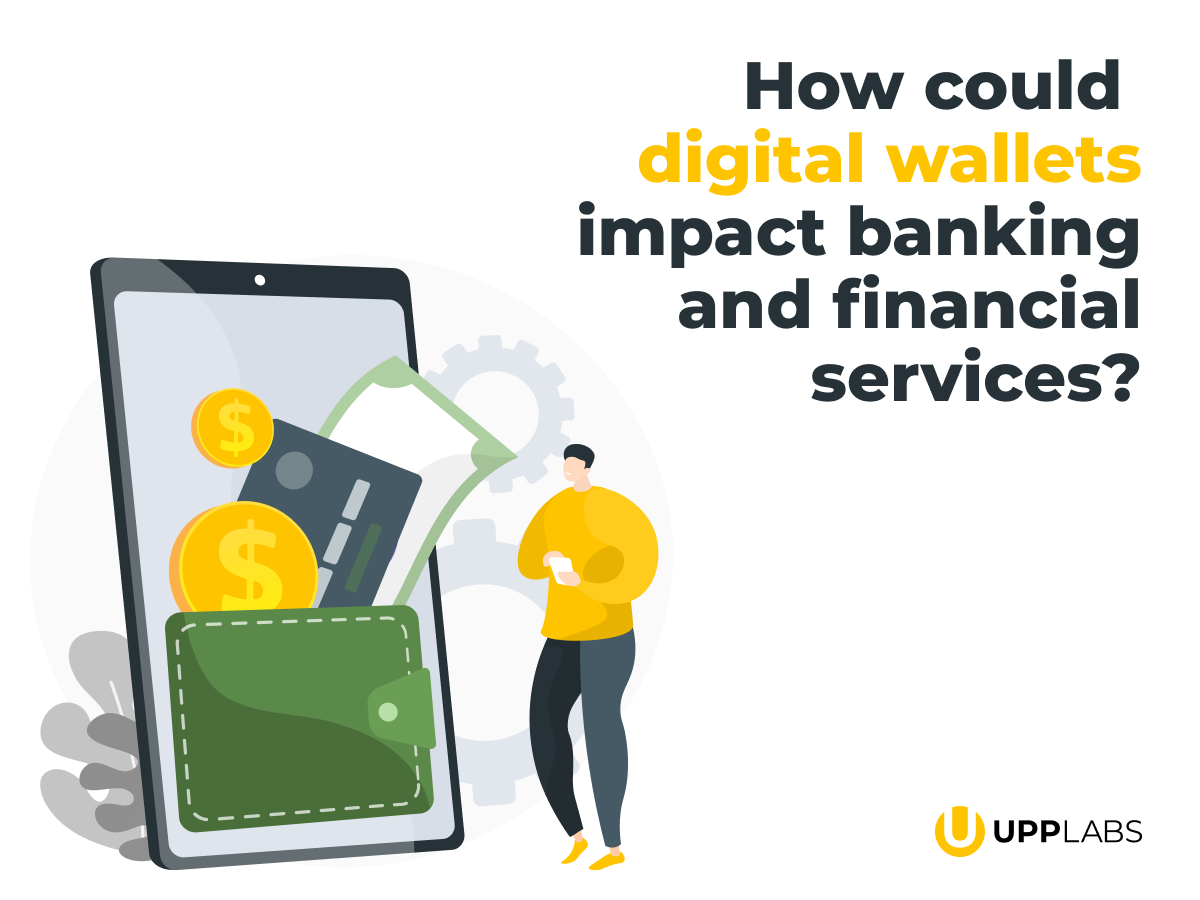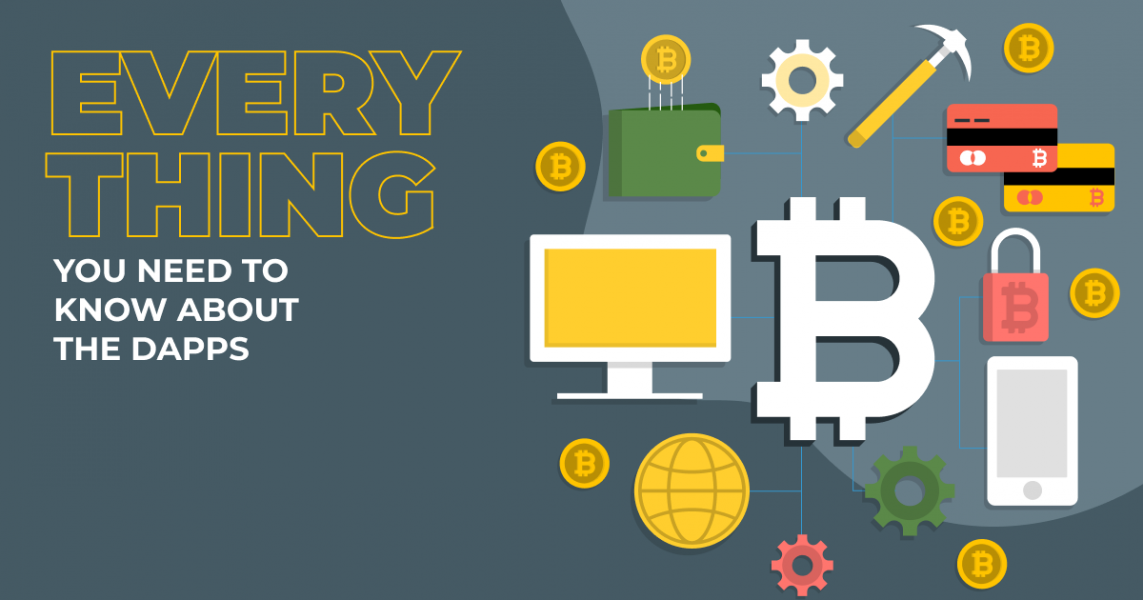The studies show that the total number of digital wallet users worldwide will exceed 5.2 billion in 2026, up from 3.4 billion in 2022, an increase of over 53%. And it’s no surprise. With a digital wallet, you can make money transfers, pay for goods and services, and live without cash or a bank account. Transactions between systems are instantaneous, and many allow using different currencies. At the same time, more and more users prefer digital wallets as a more convenient and cheaper alternative to traditional banking services. In this article, we will explore how digital wallets could impact banking and financial services.
What are digital wallets?
A digital or electronic wallet is a system of special software, a separate device, or an online service that stores users’ money electronically. Such a payment method enables users to purchase online and in physical stores. It is possible thanks to connecting to a mobile device. In addition to storing payment data, a digital wallet can also provide access to discount coupons and loyalty cards.
We can classify wallets depending on their features:
- Desktop wallets
These applications are only available from the laptop or desktop computer installed. They provide sufficient data security, although there is a risk of losing all the funds if the computer is hacked (or infected with a virus). Therefore, it is necessary to take security measures such as anti-malware and backup.
- Mobile wallets
The mobile wallet works through a smartphone, tablet, or smartwatch application. Wallets of this type are highly convenient when making personal payments. But as with desktop wallets, the user should take care to back up their data to ensure its safety.
- Semi-closed wallet
This type of wallet allows users to transact on a limited list of stores and sites. Although their area of use is limited, you can use them for online and offline purchases. However, merchants must enter into agreements with issuers to accept payments from such wallets.
4. Open wallet
Open wallets are issued by banks or institutions that cooperate with them. Users can use them for any transaction, make transfers and withdraw funds from bank accounts and ATMs.
5. Closed wallet
It’s a type of wallet that many companies use for selling goods and services to their customers. Users can use the funds stored on it to make transactions only with the issuer of the wallet. It can be money from cancellations, returns, or refunds.
6. Bitcoin wallets
It is a unique type of wallet used to store cryptocurrency passwords in one place. Unlike digital wallets, they do not contain currency but provide tools to access and use. Many crypto wallets are digital, but some are physical hardware similar to USB drives. Digital crypto wallets are convenient as they allow you to manage all your assets in one place, send and receive money, and shop at stores that accept cryptocurrency.
Why choose digital wallets?
The main advantages of electronic wallets compared to other financial instruments are simplicity, high security, preservation of funds, savings, mobility, and freedom. Let’s see the main points you can get while using digital wallets.
- Simplicity and convenience
The simplicity of electronic wallets is manifested not only in not overloaded functionality and easy execution of operations but also in simple registration. To start an electronic wallet, you don’t need to leave your home – it’s enough to have a smartphone with Internet access. The registration of the electronic wallet takes place instantly. Online payment is much easier because you do not need to enter card details (number, CVV, and expiration date) and check everything. Electronic wallets are easier to use for crowdfunding or fundraising. It is enough to simply publish a link to the payment form.
- Mobility
An electronic wallet allows you not to carry a lot of cash or bank cards. It is enough to have a gadget and the Internet. However, some electronic wallets also offer to issue plastic cards. With an electronic wallet, you can make transfers anytime, anywhere, and access your funds anywhere in the world. And since all wallet management processes take place online, there is no need to visit the financial institution’s office for identification. User verification in e-wallets often takes place online – it is enough to simply attach your documents to the wallet and confirm your identity via a video link.
- Security of transactions
Digital wallets are much safer when shopping online. If you want to purchase a product, you don’t need to enter your card details (number, expiration date, and CVV code). Instead, you can use a unique transaction identifier. And if you sell, there is no need to share personal data with a stranger. It is enough to send a link to the payment form or get a confirmation code from the mobile operator.
- Saving money
Your funds in the electronic wallet will be secure and always with you. Unlike cash, electronic money cannot be torn, soiled, lost, or forgotten at home. Even if you lost a gadget with an electronic wallet, you could access it from another device via the Internet, and you do not need to waste time, as in the case of blocking a lost bank card.
- Speed
Payment from electronic wallets is transferred instantly and does not depend on holidays or weekends. Funds are credited immediately, and you can instantly see the current balance on the account.
Popular electronic wallets in the world
Opening a digital wallet is simple and usually takes a few minutes. You just need to download the app of your choice, enter the details from the appropriate debit or credit card, and start working with your assets immediately. Once the digital wallet is set up, the owner can use it to make online or contactless payments. There are many options for digital wallets. Among the most popular ones are:
- Google Pay
It appeared in 2018 after the merger of Google Wallet and Android Pay. It can be used in-store, via Android apps, or online in the Chrome browser, and the customers can use the card details saved in their Google Account. The app allows you to send money from your debit card, bank account, or wallet balance. At the same time, Google’s Android Pay payment system, built into the smartphone’s operating system, allows you to make payments by connecting the device to a payment terminal.
- PayPal
It is one of the most famous and widely used digital wallets. It provides online payments and money transfers between users and works equally well for Android and iOS users.
3. Payeer
A site that is convenient for freelancers working with foreign customers. Transfers are available in 127 countries of the world. All you need for registration is an email to receive a letter with further instructions. The system allows you to replenish the wallet’s balance and enter funds on cards. There is an internal crypto exchange.
4. Amazon Pay
One of the most popular e-commerce platforms in the world launched its wallet, Amazon Pay, in 2007. It is integrated with Amazon.com and uses its customer base. The customer information, such as shipping information, is already stored in their Amazon account. Users can also pay for the services of external sellers from their accounts on the platform.
Impact on traditional banking services
Modern digital banking technologies open up new opportunities for Fintech companies and allow them to provide better customer services in a safer, more reliable, and more affordable way. In this way, Fintech companies maintain their competitive edge over other competing fintech and banking industries. These new technologies allow you to adapt to change, introduce new products, and compete quickly.
Modern electronic wallets should first be convenient – have an intuitive interface, the ability to register, and support verification 24/7. The registration process should take a minimum of time. Today, consumers do not want to spend much time on financial transactions, so wallets must provide one-click payments.
Every modern electronic wallet should build an individual approach to customers, provide various bonuses and loyalty programs, and bring cashback for certain services.
Among the most transformational strategies of digital wallets are:
- Modernization of applications
- Solutions for the digital workspace
- The attraction of multi-cloud for sustainable digital experience
- Correspondence to the digital giants
Bank researchers believe that in the future, banks and financial organizations will use every step of users to fully understand the lives and needs of customers and personalize the offered services with the help of artificial intelligence.
At the same time, the bank’s role will be to determine and offer the most relevant service to the client. Interaction with customers will be as simple and convenient as possible using voice, biometrics, and wearable devices. The borrower’s risk assessment will be based on lifestyle habits and purchase history.
At the same time, digital currencies will improve the speed of payments and enable the launch of innovative services, and context-relevant financial services will replace traditional banking products.
Bankers are happy with the growth of non-cash payments, but at the same time, new technologies are destroying the traditional relationship between customers and the bank. The type of application you have on your smartphone is more important than your bank.
If you have any questions regarding Fintech or digital wallet development – there is no point in further search! Check our expertise here.
UppLabs is a perfect companion to lift you Upp!



